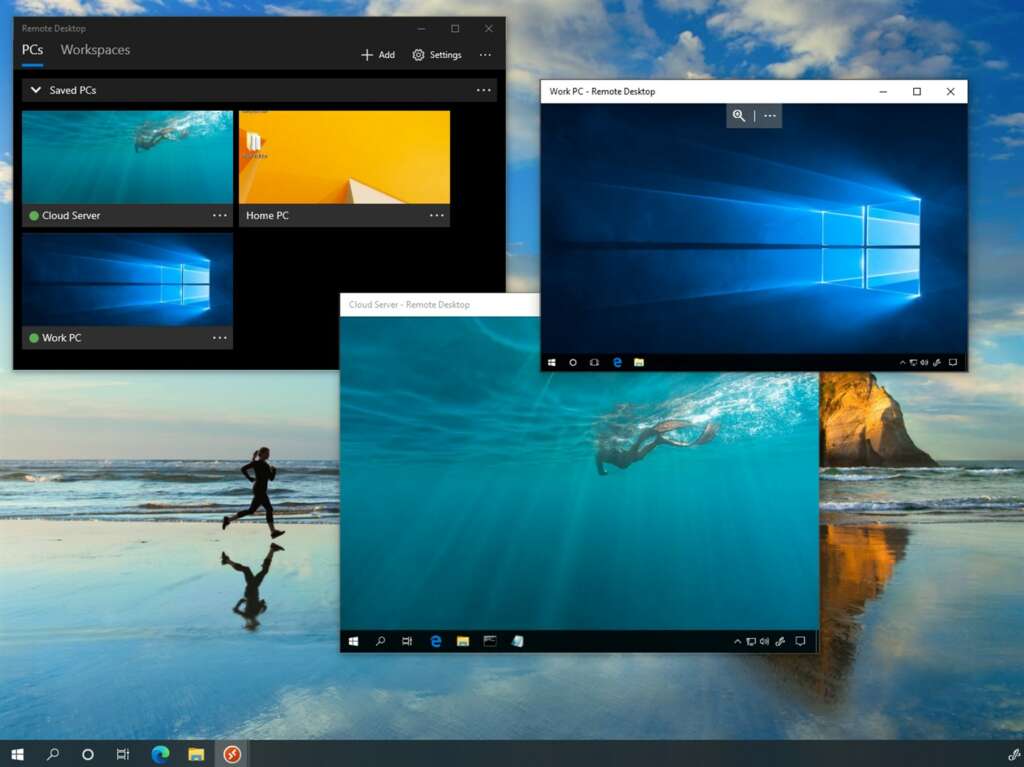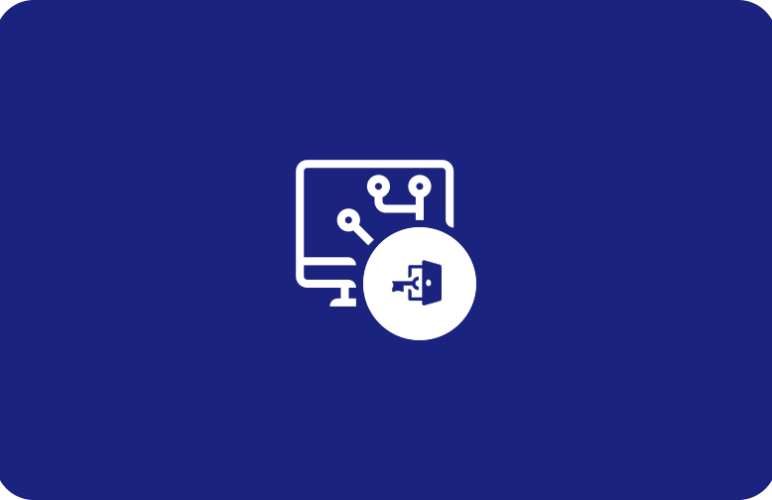Should You Choose Cheap Remote Desktop Over High Quality?

VPS hosting has grown in popularity as a solution for people and companies looking for discretion and privacy when using the internet. Among the many hosting alternatives available online are shared hosting, dedicated hosting, and virtual private server (VPS) hosting.
Jump To...
VPS Hosting
A VPS (Virtual Private Server) is a web-based server environment that hosts user resources and functionalities. It provides a CPU that is optimised, lots of RAM and storage, and compatibility with many operating systems. VPS hosting, as opposed to shared hosting, gives users total control and authority in an isolated environment. The user-friendly interface guarantees security and privacy while improving server performance.
Another increasingly popular approach, similar to hosting, is remote desktop software.
Software for Remote Desktops
A remote desktop refers to a physical computer that can be accessed and controlled using your own computer. Any actions you perform on your computer will directly affect the remote computer to which your hardware is connected. Remote desktops often involve shared servers, resulting in a lower cost but potentially lower quality.
Remote access software facilitates a user’s ability to gain remote access to another physical computer. While remote access tools, commonly referred to as remote desktops, offer benefits, they also come with their own set of advantages and disadvantages in various aspects.
Selecting the best option to meet your demands for computing
Using remote computers for privacy reasons might seem appealing, but it’s crucial to first understand your computing needs. Create a list of requirements that your software package should meet. Here are some scenarios where using a VPS could be beneficial:
Web Hosting: If you need to host websites, blogs, or e-commerce platforms, a VPS offers dedicated resources, better performance, and full control over the hosting environment compared to shared hosting.
Development: Administrators and developers who require isolated environments for coding and testing applications prefer remote control over their servers.
Scalability: As a website grows, its traffic is expected to increase. Having scalability options ensures proper expansion of resources.
Root Access: Users requiring administrative control for customizing software and full root access often choose VPS hosting.
Personal Files: Individuals who want access to personal files, documents, and applications from different devices can benefit from a VPS with appropriate privacy measures.
Security: Users concerned about data security can implement various precautionary measures, such as installing encryption software or firewalls.
Resource Use: Having control over resources and the ability to customize the server is essential for enhancing the user interface and overall performance.
The Role of VPS
VPS hosting provides a variety of features for personal use, offering benefits beyond the usual ones like privacy, server scalability, enhanced performance, and customizability. Here are some unconventional reasons why you may need a VPS:
1. Data Backup
Servers are essential for securely storing data, which enables companies and developers to protect a significant amount of data for privacy. 64 zettabytes of data are reportedly kept on the Internet, and this amount is growing every day, according to a 2020 study.
Technology is becoming more and more demanding, thus safeguarding data from loss or harm is essential. Most virtual private servers come with backup and recovery features to make sure your data is safe, but hosted servers provide a great environment for storing data.
2. Skill Development
VPS hosting offers a conducive environment for real-time learning and experience, particularly for individuals seeking to enhance their understanding of server management. Developers can engage in hands-on practice to refine their skills in an environment free from external interference.
These servers offer a variety of setups that users can use to practise in a safe environment. Users are given complete creative freedom, so they can use the resources at their disposal to efficiently develop and hone their talents.
3. Anonymous Browsing
Users who prioritize online privacy and security can leverage their VPS as a VPN (Virtual Private Network) server. This configuration enables anonymous and secure internet browsing, protecting users from the tracking activities of potentially malicious websites.
The incorporation of VPN functionality is a standard feature in the majority of VPS hosting services. Granular access management ensures that unauthorized users are prevented from accessing any data without explicit permission, thereby safeguarding the individual’s overall privacy.
4. Proxy Server
VPS hosting can offer proxy servers to users, providing them with the capability to access the internet using a different IP address. This new IP address enables users to bypass geo-restrictions and access content that may have been previously unavailable. Their original IP address is hidden, which improves privacy and lessens the possibility of being a target of online attacks.
5. Secure Browsing
Virtual private servers (VPS) can function as VPNs, enabling users to access a variety of media content, such as movies and music, without relying on potentially unsafe services.
This feature allows users to bypass geographical restrictions imposed by streaming sites. Additionally, for individuals concerned about internet security, using virtual private servers provides a controlled environment that reduces the risk of malware attacks on their devices.
The Role of Remote Desktops
While the primary purpose of remote desktops is to offer remote access to a computer’s desktop environment, there are several unconventional benefits that users may overlook initially.

1. Lower Expenses
Old or budget-friendly devices can serve as remote desktop clients. By offloading resource-intensive tasks to the remote computer and minimizing the necessity for frequent hardware upgrades, the longevity of older devices is extended.
2. Remote Gaming
Users can configure remote desktops for gaming, allowing them to play graphically demanding games on their low-end devices. Meanwhile, the actual gaming process takes place on a high-performance remote computer.
3. Access for Guests
Remote desktops can be utilized to grant visitors access to a controlled environment. This is helpful for demonstrating applications, doing presentations, and letting guests use particular apps without disclosing the host system.
4. Multi-Platform Access
Remote desktops provide a way to access a consistent computing environment using multiple hardware and operating systems, promoting flexibility and cross-platform compatibility.
5. Temporary Environments
Remote access software is beneficial for short-term projects, testing, or situations where a disposable environment is needed, as they can be quickly set up for temporary use.
Comparing Remote Computers and VPS Hosting
Whether for personal use or business needs, it is essential to weigh the pros and cons of each software option to make an informed decision. Identifying your business needs is crucial to selecting the software that aligns with your goals. To assist you in choosing the option that best meets your needs, the following compares remote desktop software with virtual private server hosting:
Security
VPS Hosting: Because virtual servers in VPS settings are isolated from one another, there is less chance that security flaws would spread to other clients. Security is shielded from resource-intensive tasks on neighbouring servers by dedicated CPU, RAM, and storage.
Users can set up customised security settings and install security software that suits their needs. To prevent unauthorized access and potential threats, users can set up firewalls and access control procedures.
Remote Access: With remote desktop software, data is stored on the distant server, reducing the risk of data loss in the event of a local device being stolen or lost. To preserve a controlled and secure environment, administrators can enforce security policies and procedures during the remote connection.
Since local devices function solely as terminals to access remote utilities, they are less vulnerable to attacks. It is imperative to acknowledge that remote connections have the potential to bring vulnerabilities. These vulnerabilities may pertain to authentication, information transmission, or potential attacks from malevolent users.
Performance
VPS Hosting: VPS provides a minimum number of dedicated resources to minimize performance deterioration caused by resource sharing. Even during traffic peaks, predictable performance is ensured via regular resource allocation.
To ensure optimal performance, users can adjust resource distribution based on their application’s requirements. Reduced latency brought about by isolation and dedicated resources allows for faster application responses.
Remote Access: Remote sessions feature fast hardware, handling resource-intensive operations on the distant server. Users can use portable devices for remote connections.
However, since the performance of remote access is heavily dependent on network circumstances, remote desktop solutions may experience problems with poor network connectivity, resulting in latency and longer reaction times.
Stability of the Server
VPS Hosting: VPS makes sure that resources are distributed equitably, so that no user’s actions negatively impact other users. This improves overall server stability by reducing server instability caused by resource contention. Problems on one virtual private server don’t impact the reliability of nearby virtual servers.
Remote Access: Centralized management of remote servers reduces the impact of individual device crashes or instability on the user experience. However, remote access sessions can be interrupted by network outages, affecting server reliability. Remote access software can sometimes feel like a double-edged sword due to occasional crashes despite centralized management of the remote desktop.
Available Resources
VPS Hosting: Virtual servers come with a number of cutting-edge capabilities, such as two-factor authentication, remote utilities, dependable tech support, control over the operating system, and file transfer. They provide just the right amount of resources, balancing between shared and dedicated hosting. The optimal use of resources can be ensured by effortlessly scaling them up or down to meet evolving needs.
Remote Access: Users can execute resource-intensive software for improved work quality by connecting to powerful servers from even low-end devices. File transmission, unattended remote access, tech assistance, and user-friendly remote utilities are among the aspects of remote access that are supported. However, performance may suffer if multiple users compete for resources when accessing the remote server simultaneously. Multi-monitor support is available for every host computer, but performance may not be optimal.
Maintenance of Servers
VPS Hosting: Various VPS hosting plans, including self-managed and fully managed options, are available. Fully managed plans allow the system to maintain itself and receive periodic upgrades. Users have control over when and how updates are performed, enabling them to schedule maintenance during off-peak times. Hosted applications can be used with minimal disruption from maintenance operations.
Remote Access: The remote server serves as a central location for system upgrades and maintenance, eliminating the need to update each device individually. Less software maintenance is required, as users only need remote access to software locally. However, maintenance and changes to the distant server can impact users’ ability to access their resources. Remote task management features can assist with such maintenance tasks.
Privacy of Data
VPS Hosting: The risk of unauthorized access is reduced as data stored on a VPS is segregated from other users. Users with specific data privacy requirements can customize security measures and encryption algorithms to meet their needs. Utilizing VPS Hosting is preferable as it keeps each user’s private data isolated from that of others.
Remote Access: Organizations can apply uniform data privacy and security safeguards since data is stored on a distant server, but most of these measures are set up by the user rather than being provided by the remote desktop software.
Without the correct encryption, data exchanged between the user’s device and the distant server might be intercepted, posing a significant threat to computers that often use unattended remote access.
Downtime
VPS Hosting: Additional VPS instances remain unaffected by downtime or technical issues in a single VPS instance. In case of an unplanned outage, users can quickly restore data using snapshots and routine backups.
Remote Access: Remote access may experience temporary unavailability during server outages, impacting users’ tasks or work. The remote desktop software was not created to address potential instances of downtime.
Scalability
VPS Hosting: Vertical scaling allows for easy resource upgrades as the application’s needs increase, ensuring smooth scaling. Applications can also expand horizontally across multiple servers by creating and managing multiple VPS instances, a process known as horizontal scaling.
Remote Access: Scaling resources centrally on a distant server is simpler, facilitating the accommodation of rising demand. Cloud-based remote access requires additional budgeting for remote tech support. However, there are resource constraints in remote work, and surpassing these limits might require significant adjustments or additional expenses. Even the best remote desktop software has its limitations.
Virtualization
VPS Hosting: Virtualization technology ensures efficient resource management and security, allowing users to run multiple operating systems on separate VPS instances.
Remote Access: Remote desktop software, while supporting mobile-to-mobile connections and multiple monitors, may face limitations with increased users on a single server, leading to potential resource conflicts and inconsistent performance.
Personalization
VPS Hosting: VPS hosting offers users the flexibility to customize their servers and program settings, allowing them to design and maintain their computing environment.
Remote Access: While remote computing provides control over multiple devices, there are limitations to local control for security reasons. Users may have limited control over settings and configurations on their local devices during remote access.
Affordability
VPS Hosting: Positioned between shared and dedicated hosting, VPS strikes a balance in terms of pricing, offering features akin to dedicated hosting at a more affordable rate than the latter. It delivers the advantages of dedicated hosting without the hefty price tag.
Shared hosting tends to be economical but comes with compromises on resources, facilities, and privacy. In contrast, dedicated hosting is a viable choice for those with ample budgets and substantial resource requirements. VPS emerges as a cost-effective solution suitable for companies of varying sizes, as users only pay for the resources they actively utilize.
Remote Access: VPS facilitates remote access using cost-effective remote devices, potentially extending the lifespan of existing equipment. Scaling resources on a remote server is often more budget-friendly than upgrading individual local devices.
While VPS stands out as one of the more budget-friendly hosting options, it’s crucial to consider the cumulative costs of utilizing remote access solutions over an extended period. Subscription expenses can accumulate, influencing the overall cost-effectiveness of this approach.
Why a VPS hosting package is a better option than a cheap remote computer
Opting for a cheap remote PC may seem cost-effective initially, but limitations on resources, security, and customization could outweigh the benefits. VPS hosting strikes a balance between cost-effectiveness and feature-richness, making it a more reliable and adaptable choice.
Reasons to choose VPS Hosting over a cheap remote computer:
Dedicated Resources: VPS offers dedicated resources ensuring consistent performance, even during traffic peaks, avoiding potential restrictions seen in low-cost remote access solutions.
Enhanced Security: VPS hosting provides isolation between virtual servers, reducing the risk of security breaches and preventing attacks on neighboring environments.
Customization: VPS users can customize software and create unique environments, a flexibility not possible with low-cost remote PCs.
Predictable Performance: VPS ensures predictable and dependable performance for programs and websites by guaranteeing specific resources. Scaling is also more flexible compared to low-cost remote PCs.
Server Reliability: Dedicated resource allocation and isolation contribute to enhanced server reliability, minimizing the risk of performance issues. VPS offers a wide range of resources for mobile devices.
Managed Services: VPS hosting often includes managed services for updates and maintenance, reducing the complexity of maintaining individual devices associated with a remote PC.
Data Privacy: VPS hosting ensures controlled and secure data access, protecting against potential vulnerabilities that may compromise data privacy on a low-cost remote PC.
Customized Security Measures: VPS customers can implement tailored security measures, including file transfer software, firewalls, and encryption, which might not be available on unattended devices with a remote desktop.
Conclusion:
While remote computers offer convenient control from a distance, factors like internet speed and security vulnerabilities should be considered. In contrast, VPS hosting stands out as the superior choice, providing a dedicated online space with greater authority, security, and control.
Key reasons for the superiority of VPS hosting:
Enhanced Security: VPS hosting offers superior protection compared to shared hosting or remote machines, isolating your virtual server and reducing vulnerability to cyber attacks.
Scalability: VPS hosting allows cost-effective scaling of resources as server needs grow, providing consistent performance and flexibility for diverse company requirements.
Reliability during Peaks: VPS hosting ensures smooth operation of websites and apps even during traffic peaks, thanks to dedicated resources.
Customization and Control: VPS hosting enables businesses to customize their hosting environment, addressing specific requirements, and promoting growth without compromising on comfort.
In summary, VPS hosting emerges as the preferred option for businesses reliant on online presence and privacy. Its unwavering performance, scalability, customization, and security make it the optimal choice for businesses of all sizes. With our Blend Hosting, we believe we offer all the features sought in remote desktops and more. If ever in doubt, our dedicated customer support team is ready to assist, ensuring a solution to all concerns. Give VPS hosting a try, and you’ll discover it’s the answer to all your server-related questions!
Frequently Asked Questions
Absolutely, several remote access software options offer free facilities, primarily enabling users to control their computers remotely. But it’s important to be aware of any possible downsides to these free options. They may lack the robust security measures needed for sensitive tasks and might not perform optimally for resource-intensive activities.
However, even though VPS hosting could be more expensive, it ends up being a better choice. The added expense translates to enhanced dependability, offering dedicated power, heightened security, and increased control. Because of this, VPS hosting is the best option, especially for private and commercial operations where dependability is crucial.
While remote work from a computer offers convenience, it comes with drawbacks. Remote computers may lack speed, and a poor internet connection can exacerbate the situation. Furthermore, you may not have complete control over the remote machine, unlike with your own computer.
In contrast, VPS hosting frequently emerges as a superior option. It’s akin to having your exclusive section of a powerful computer, offering speed and reliability. VPS hosting provides greater power and flexibility, making it ideal for critical tasks or running large programs. Despite the utility of remote computers, VPS hosting often stands out as the better choice, providing more control and superior performance.
There are several reliable remote desktop software options, with standout choices including TeamViewer, AnyDesk, and Chrome Remote Desktop. These tools empower users to remotely control computers, proving beneficial for both professional tasks and assisting others with computer issues.
It’s crucial to note that the “best” option is subjective, contingent on individual needs and device compatibility. The selection should align with specific requirements and preferences for optimal performance on your devices.
Certainly! Both VPS hosting and remote desktops have their advantages, but for beginners, there are a few considerations. While remote desktops require a robust internet connection to perform well, VPS hosting might be a more favorable option for novices.
With VPS hosting, you essentially operate it as if it’s your own computer, enjoying the benefits of having your private space on a larger server. This setup is conducive to learning and experimenting with new things, offering a more hands-on experience. Furthermore, in comparison to remote desktops, VPS hosting often provides more power and faster performance.
In summary, for beginners, especially when it comes to quick tasks and a user-friendly experience, VPS hosting may be a better choice than remote desktops.
Secure remote access is a fundamental feature for users accessing remote computers. While Chrome Remote Desktop connections offer convenience, they can be occasional targets for hackers, particularly if strong passwords or secure remote desktop software aren’t employed.
In contrast, VPS hosting offers a higher level of security, resembling a private online space. With VPS hosting, users can implement robust security measures such as firewalls and encryption to safeguard their data. While Chrome Remote Desktop is useful for routine activities, for those prioritizing enhanced information security, VPS hosting is often considered a more secure and preferable choice.
When utilizing remote-access computers, there are strategies to enhance privacy, but caution is warranted. Ensuring that the remote computer access program is consistently updated is crucial to address security vulnerabilities in older versions. However, even with these precautions, risks may persist.
For those prioritizing privacy, VPS hosting emerges as a superior option. It offers a private, exclusive online space, allowing users to implement robust security measures, enable two-factor authentication, and exert greater control over access.
While there are steps to enhance privacy with remote-access PCs, VPS hosting is often considered a safer alternative for individuals seeking increased control over their private data.
Remote work offers flexibility but may not always be exceptionally fast, with potential slowdowns due to weak connections. Security concerns can arise if remote access is not adequately protected, posing risks to sensitive business information. To address these issues, especially for enterprises, VPS hosting is often a preferred choice.
VPS hosting provides businesses with more control over security and performance, offering a solution that is frequently quicker and more reliable. This becomes crucial for organizations that prioritize the efficient and secure operation of their systems. While permanent access to remote computers is valuable, VPS hosting stands out as a superior option for companies seeking enhanced control and protection.
While permanent remote access allows you to use your computer from anywhere, offering convenient access to files and programs, there are downsides to consider:
Slow Internet: If your internet is slow, your PC may appear sluggish during remote access.
Security Risks: Carelessness with passwords and security measures may expose your computer to unauthorized access.
While permanent remote access is handy, it may not be very fast and could pose security concerns. For a safer and more controlled solution, consider VPS hosting. While remote access is convenient, VPS hosting provides superior speed and security, offering a more robust and reliable option.
VPS hosting emerges as the most optimal choice for hosting needs. It provides a private online space for efficient management of websites or applications, offering dedicated resources, enhanced security, and increased control. In comparison to alternative hosting options like shared hosting and remote access, VPS hosting consistently excels in both performance and security.
One of the standout advantages of VPS hosting is the heightened reliability it offers. Your website’s performance remains unaffected by the activities of other users, ensuring a consistent experience for your visitors.
In essence, VPS hosting is widely regarded as the best solution when seeking a customizable and dependable hosting service. Whether you’re a small developer or a large company, a virtual private server ensures commendable performance, control, and stability for your online endeavors.
Transferring files with remote desktop access functions similarly to local file management on your computer. Generally, you can exchange files between your local device and the remote computer using features such as copy and paste or drag and drop. This file transfer capability proves handy for sharing documents, images, or various types of information between the two systems.
However, it’s important to note that the speed of your internet connection can impact the rate of file transfers. It’s advisable to consult the guidelines provided by the specific remote desktop software you’re using, as certain programs may have specific file transfer options that need to be followed.



